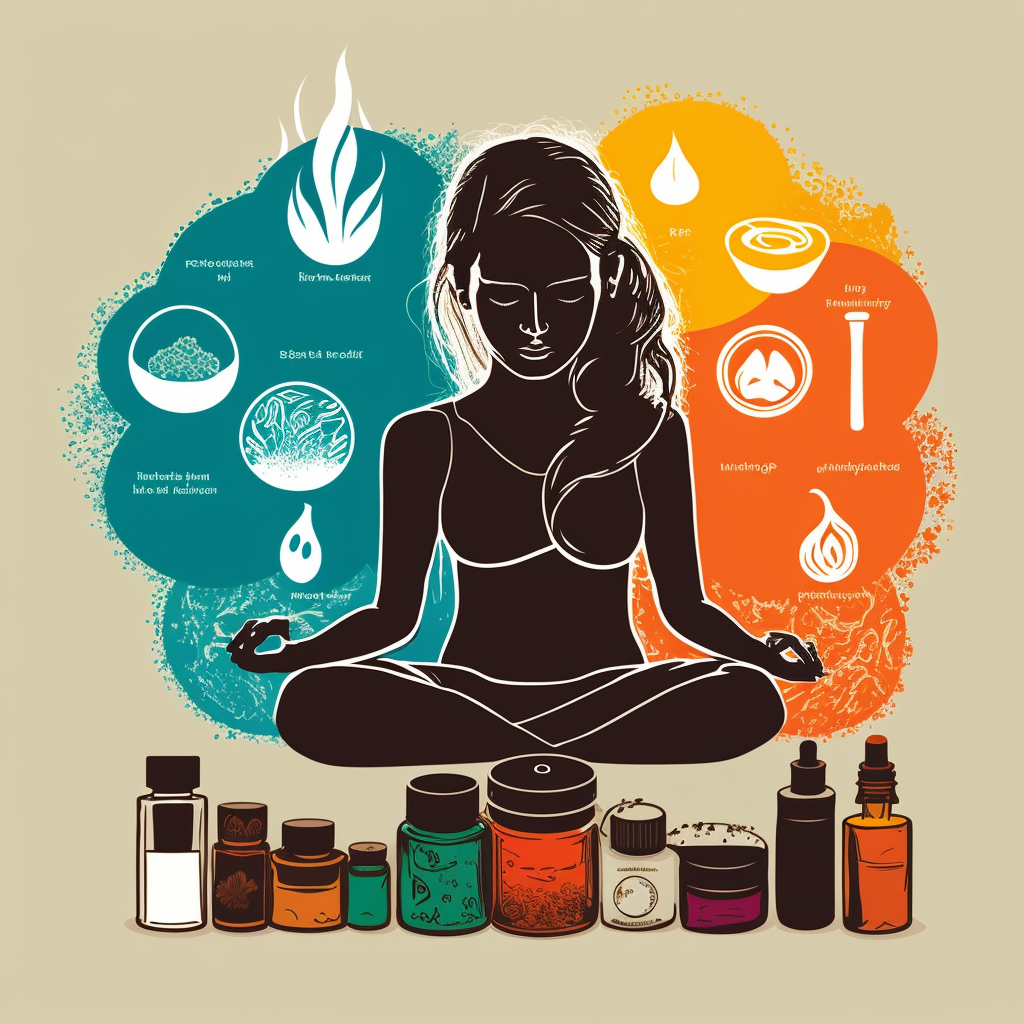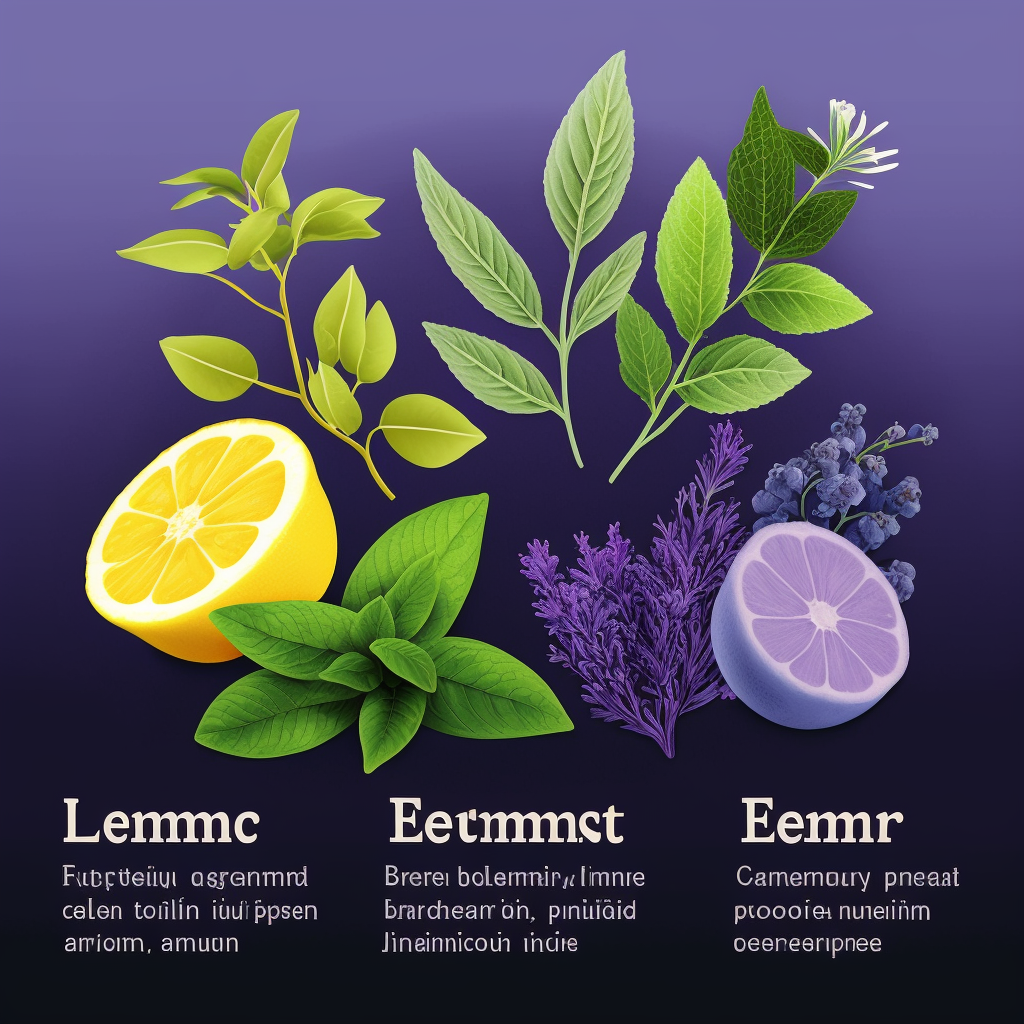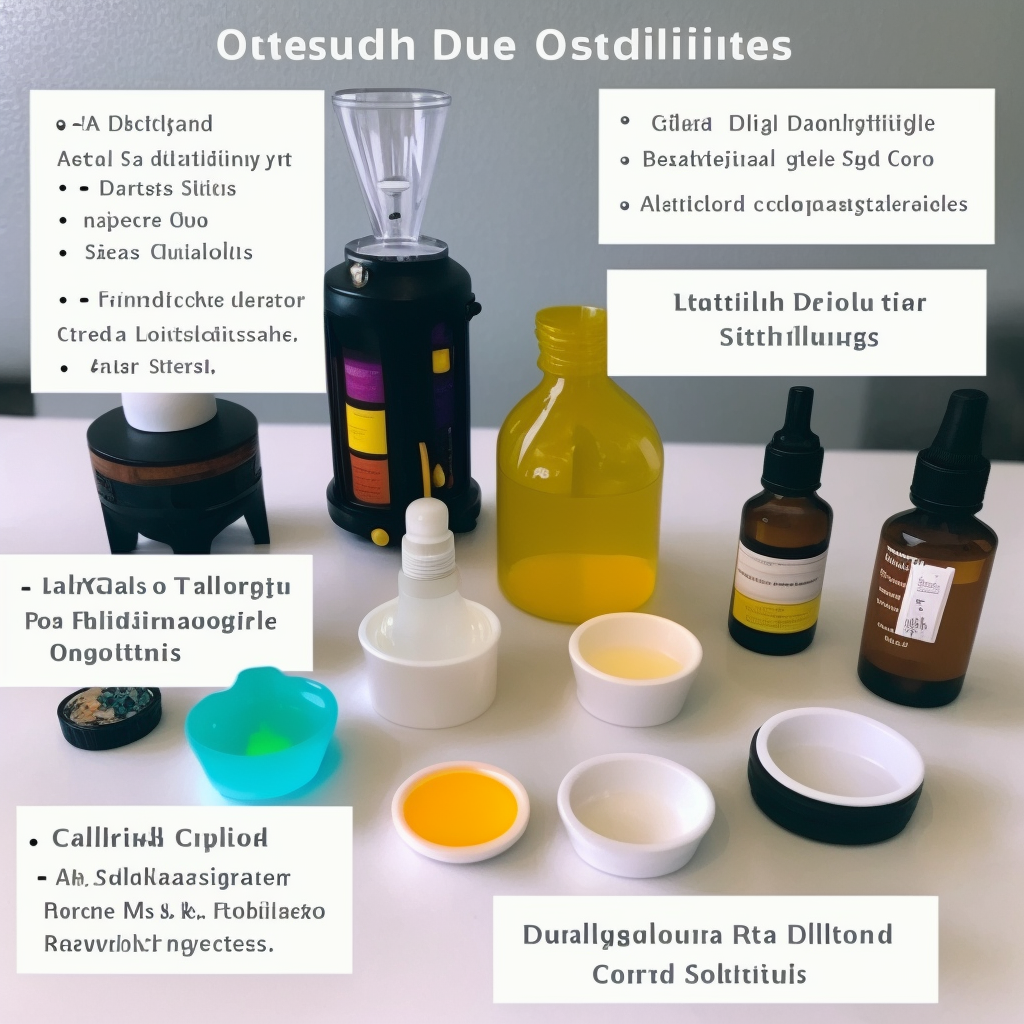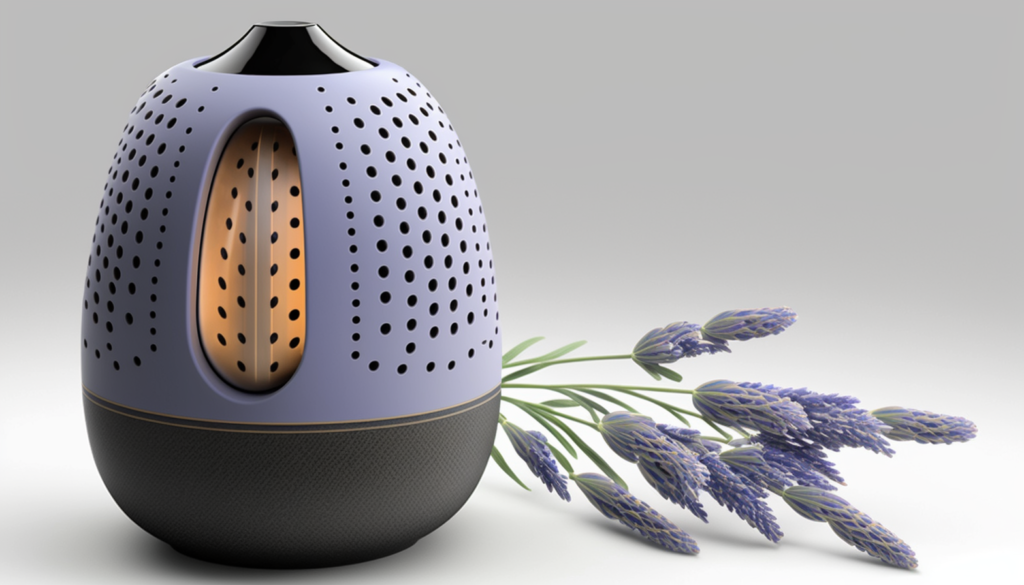Definition of aromatherapy and essential oils.
Aromatherapy is a holistic healing practice that uses natural plant extracts, known as essential oils, to promote physical, emotional, and mental wellness. Essential oils are highly concentrated plant extracts that are derived from various parts of plants, such as leaves, flowers, roots, and fruits. These oils contain the natural fragrance and therapeutic properties of the plant, and can be used in different ways to support health and well-being. Aromatherapy and essential oils are often used in combination with massage therapy, meditation, or other relaxation techniques, but can also be used on their own in a variety of settings.
History of the use of essential oils for healing and wellness.
The use of essential oils for healing and wellness dates back thousands of years, to ancient civilizations such as the Egyptians, Greeks, Romans, and Chinese. These cultures recognized the therapeutic properties of plants and used them for a variety of purposes, including religious ceremonies, beauty treatments, and medicinal remedies.
One of the earliest records of essential oils comes from the Egyptians, who used aromatic plants for embalming and other religious practices. They also used oils such as frankincense, myrrh, and cedarwood for their medicinal properties, such as treating wounds and respiratory issues.
The Greeks and Romans also utilized essential oils in their daily lives, particularly for their cosmetic and medicinal properties. The physician Hippocrates, known as the father of modern medicine, praised the benefits of aromatherapy and essential oils, and recommended them for a variety of health conditions.
In China, essential oils were used as part of traditional medicine, with references to the use of plant extracts dating back to as early as 2697 BC.
Throughout history, essential oils have been used for a range of purposes, including promoting relaxation, treating infections and diseases, improving skin and hair health, and enhancing mood and mental clarity. Today, aromatherapy and the use of essential oils remain popular for their numerous physical and emotional health benefits.
Thesis statement: Aromatherapy and essential oils offer numerous benefits for physical, emotional, and mental health.
This thesis statement effectively summarizes the main argument of the blog post, which is to explore the various benefits of aromatherapy and essential oils for physical, emotional, and mental health. It sets up the main points that will be covered in the post and provides a clear focus for the reader.
Relief of pain and inflammation.
Essential oils can be effective in relieving pain and inflammation in the body due to their anti-inflammatory, analgesic, and sedative properties. Some essential oils commonly used for pain relief and reducing inflammation include:

- Peppermint oil: Has a cooling effect and can be used topically to alleviate pain and inflammation associated with headaches, muscle pain, and joint pain.
- Eucalyptus oil: Has anti-inflammatory and analgesic properties, and can be used topically to relieve muscle and joint pain.
- Lavender oil: Known for its relaxing and sedative properties, lavender oil can be used topically or inhaled to reduce pain and inflammation.
- Rosemary oil: Has analgesic and anti-inflammatory properties, and can be used topically to alleviate pain and inflammation in the joints.
- Ginger oil: Has anti-inflammatory and analgesic properties, and can be used topically or inhaled to alleviate pain and inflammation associated with muscle and joint pain.
These essential oils can be used in a variety of ways, such as topical application through massage or in a bath, inhalation through a diffuser or steam, or ingestion in small amounts with guidance from a healthcare professional. It is important to note that while essential oils can be effective in providing relief for pain and inflammation, they should not be used as a substitute for professional medical treatment when needed.
Boosting immunity and respiratory health.
Essential oils can be beneficial in supporting immune and respiratory health due to their antimicrobial, antiviral, and expectorant properties. Here are some essential oils commonly used for boosting immunity and respiratory health:
- Tea tree oil: Has antimicrobial properties and can be used to fight off infections, particularly those affecting the respiratory system.
- Eucalyptus oil: Contains eucalyptol, which has expectorant and decongestant properties, and can be used to alleviate respiratory issues such as coughs, colds, and sinus infections.
- Peppermint oil: Contains menthol, which has a cooling effect and can help clear respiratory congestion and improve breathing.
- Lemon oil: Has antibacterial and antiviral properties, and can be used to support the immune system and fight off infections.
- Frankincense oil: Has anti-inflammatory properties, which can help alleviate respiratory issues such as asthma and allergies.
These essential oils can be used in a variety of ways, such as inhalation through a diffuser, steam, or a few drops added to a bowl of hot water, or topical application through massage or in a bath. It’s important to note that while essential oils can be helpful in supporting immune and respiratory health, they should not be used as a substitute for professional medical treatment when needed.
Improvement of digestion and gut health.
Essential oils can be helpful in promoting digestive health and improving gut health due to their antispasmodic, anti-inflammatory, and carminative properties. Here are some essential oils commonly used for improving digestion and gut health:
- Peppermint oil: Contains menthol, which can help relax the muscles in the digestive tract and relieve symptoms of indigestion, bloating, and nausea.
- Ginger oil: Contains gingerols and shogaols, which can help reduce inflammation in the digestive tract and relieve symptoms of indigestion, nausea, and vomiting.
- Fennel oil: Has carminative properties, which can help relieve gas and bloating, and improve digestive function.
- Lemon oil: Contains limonene, which can help stimulate the digestive system and improve digestion.
- Chamomile oil: Has antispasmodic properties, which can help relieve cramps and spasms in the digestive tract, and improve digestion.
These essential oils can be used in a variety of ways, such as topical application through massage or in a bath, or ingestion in small amounts with guidance from a healthcare professional. It’s important to note that essential oils should not be used as a substitute for professional medical treatment when needed, and that ingestion of essential oils should only be done under the guidance of a healthcare professional.
Skin care and wound healing.
Essential oils can be beneficial in skin care and wound healing due to their antibacterial, antifungal, and anti-inflammatory properties. Here are some essential oils commonly used for skin care and wound healing:
- Tea tree oil: Has antibacterial and antifungal properties, and can be used to treat a variety of skin conditions, such as acne, fungal infections, and cuts and scrapes.
- Lavender oil: Has anti-inflammatory and antimicrobial properties, and can be used to soothe and heal minor cuts, burns, and insect bites.
- Rosehip oil: Rich in vitamin C and antioxidants, rosehip oil can help reduce the appearance of scars and promote skin regeneration.
- Calendula oil: Has anti-inflammatory and antibacterial properties, and can be used to soothe and heal minor wounds, burns, and skin irritations.
- Frankincense oil: Has anti-inflammatory and antibacterial properties, and can be used to promote skin regeneration and reduce the appearance of scars.
These essential oils can be used in a variety of ways, such as topical application through massage or in a carrier oil, or in a compress with warm water. It’s important to note that essential oils should not be used on open wounds or deep cuts, and that they should not be used as a substitute for professional medical treatment when needed.
Relaxation of muscles and tension.
Essential oils can be helpful in promoting relaxation and reducing muscle tension due to their soothing and calming properties. Here are some essential oils commonly used for relaxation and tension relief:
- Lavender oil: Has calming and sedative properties, and can be used to promote relaxation and reduce muscle tension and pain.
- Peppermint oil: Contains menthol, which has a cooling effect and can help relieve tension headaches and muscle pain.
- Eucalyptus oil: Contains eucalyptol, which has analgesic properties and can be used to relieve muscle pain and soreness.
- Chamomile oil: Has calming and sedative properties, and can be used to promote relaxation and reduce muscle tension.
- Clary sage oil: Has calming and muscle-relaxing properties, and can be used to alleviate menstrual cramps and other types of muscle pain.
These essential oils can be used in a variety of ways, such as inhalation through a diffuser or by adding a few drops to a warm bath. They can also be applied topically through massage or in a carrier oil. It’s important to note that essential oils should not be used as a substitute for professional medical treatment when needed, and that they should be used with caution and in moderation, as some oils may cause skin irritation or other adverse reactions.
Reducing stress and anxiety.

Essential oils can be helpful in reducing stress and anxiety due to their calming and soothing properties. Here are some essential oils commonly used for stress and anxiety relief:
- Lavender oil: Has a calming and relaxing effect on the mind and body, and can be used to reduce anxiety and promote relaxation.
- Bergamot oil: Has a citrusy aroma that can help uplift mood and reduce stress and anxiety.
- Frankincense oil: Has a grounding and calming effect on the mind and body, and can be used to reduce stress and promote relaxation.
- Ylang ylang oil: Has a sweet and floral aroma that can help reduce anxiety and promote relaxation.
- Chamomile oil: Has a calming effect on the mind and body, and can be used to reduce stress and anxiety.
These essential oils can be used in a variety of ways, such as inhalation through a diffuser or by adding a few drops to a warm bath. They can also be applied topically through massage or in a carrier oil. It’s important to note that essential oils should not be used as a substitute for professional medical treatment when needed, and that they should be used with caution and in moderation, as some oils may cause skin irritation or other adverse reactions.
Promoting relaxation and better sleep.
Essential oils can be helpful in promoting relaxation and better sleep due to their calming and soothing properties. Here are some essential oils commonly used for promoting relaxation and better sleep:
- Lavender oil: Has a calming and relaxing effect on the mind and body, and can be used to promote relaxation and better sleep.
- Roman chamomile oil: Has a calming effect on the mind and body, and can be used to promote relaxation and better sleep.
- Sandalwood oil: Has a grounding and calming effect on the mind and body, and can be used to promote relaxation and better sleep.
- Vetiver oil: Has a grounding and calming effect on the mind and body, and can be used to promote relaxation and better sleep.
- Bergamot oil: Has a citrusy aroma that can help uplift mood and reduce stress, which can in turn promote better sleep.
These essential oils can be used in a variety of ways, such as inhalation through a diffuser or by adding a few drops to a warm bath. They can also be applied topically through massage or in a carrier oil. It’s important to note that essential oils should not be used as a substitute for professional medical treatment when needed, and that they should be used with caution and in moderation, as some oils may cause skin irritation or other adverse reactions. Additionally, individuals with sleep apnea or other sleep disorders should consult with a healthcare provider before using essential oils for better sleep.
Elevating mood and improving concentration.
Essential oils can be helpful in elevating mood and improving concentration due to their uplifting and stimulating properties. Here are some essential oils commonly used for mood elevation and improved concentration:
- Lemon oil: Has a refreshing and uplifting scent that can help improve mood and concentration.
- Rosemary oil: Has a stimulating and invigorating effect on the mind and body, and can help improve focus and concentration.
- Peppermint oil: Has a cooling and refreshing effect on the mind and body, and can help improve mood and concentration.
- Grapefruit oil: Has a citrusy and uplifting aroma that can help improve mood and energy levels.
- Basil oil: Has a stimulating and clarifying effect on the mind and can help improve focus and concentration.
These essential oils can be used in a variety of ways, such as inhalation through a diffuser, adding a few drops to a warm bath or shower, or by applying topically in a carrier oil. It’s important to note that essential oils should not be used as a substitute for professional medical treatment when needed, and that they should be used with caution and in moderation, as some oils may cause skin irritation or other adverse reactions. Additionally, individuals with certain medical conditions or allergies should consult with a healthcare provider before using essential oils.
Managing mood swings and PMS symptoms.
Essential oils can be helpful in managing mood swings and PMS symptoms due to their calming and balancing properties. Here are some essential oils commonly used for managing mood swings and PMS symptoms:
- Clary sage oil: Has a calming and balancing effect on the mind and body, and can be used to manage mood swings and PMS symptoms.
- Geranium oil: Has a balancing effect on the mind and body, and can be used to manage mood swings and hormonal imbalances.
- Lavender oil: Has a calming and relaxing effect on the mind and body, and can be used to manage anxiety and mood swings.
- Ylang ylang oil: Has a sweet and floral aroma that can help reduce anxiety and promote relaxation, which can in turn help manage mood swings and PMS symptoms.
- Rose oil: Has a calming and balancing effect on the mind and body, and can be used to manage mood swings and hormonal imbalances.
These essential oils can be used in a variety of ways, such as inhalation through a diffuser, adding a few drops to a warm bath, or by applying topically in a carrier oil. It’s important to note that essential oils should not be used as a substitute for professional medical treatment when needed, and that they should be used with caution and in moderation, as some oils may cause skin irritation or other adverse reactions. Additionally, individuals with certain medical conditions or allergies should consult with a healthcare provider before using essential oils.
Enhancing self-confidence and self-awareness.
Essential oils can be helpful in enhancing self-confidence and self-awareness due to their grounding and centering properties. Here are some essential oils commonly used for enhancing self-confidence and self-awareness:
- Frankincense oil: Has a grounding and centering effect on the mind and body, and can be used to enhance self-awareness and promote a sense of inner peace.
- Cedarwood oil: Has a calming and grounding effect on the mind and body, and can be used to enhance self-confidence and promote a sense of stability.
- Patchouli oil: Has a grounding and balancing effect on the mind and body, and can be used to enhance self-confidence and promote a sense of connection to oneself.
- Bergamot oil: Has a citrusy aroma that can help uplift mood and reduce stress, which can in turn enhance self-confidence and promote a sense of positivity.
- Sandalwood oil: Has a grounding and centering effect on the mind and body, and can be used to enhance self-awareness and promote a sense of inner peace.
These essential oils can be used in a variety of ways, such as inhalation through a diffuser, adding a few drops to a warm bath, or by applying topically in a carrier oil. It’s important to note that essential oils should not be used as a substitute for professional medical treatment when needed, and that they should be used with caution and in moderation, as some oils may cause skin irritation or other adverse reactions. Additionally, individuals with certain medical conditions or allergies should consult with a healthcare provider before using essential oils.
Lavender oil for calming and sleep.
Lavender oil is a popular essential oil used for its calming and sleep-promoting properties. Here’s how lavender oil can help:

- Calming: Lavender oil has a soothing and calming effect on the mind and body, and can help reduce anxiety, stress, and nervous tension. It has been shown to help lower the levels of the stress hormone cortisol in the body.
- Sleep: Lavender oil is also commonly used to promote better sleep. Its relaxing properties can help induce a state of calm, which can make it easier to fall asleep and stay asleep. Research has shown that lavender oil can improve sleep quality and reduce symptoms of insomnia.
Here are some ways to use lavender oil for calming and sleep:
- Diffusion: Add a few drops of lavender oil to a diffuser and let the scent fill the room.
- Bath: Add a few drops of lavender oil to a warm bath and soak for 15-20 minutes.
- Topical application: Dilute lavender oil in a carrier oil, such as coconut or jojoba oil, and apply to the skin as a massage oil or lotion.
- Pillow spray: Mix a few drops of lavender oil with water in a spray bottle and mist onto your pillow before bedtime.
It’s important to note that essential oils should not be used as a substitute for professional medical treatment when needed, and that they should be used with caution and in moderation, as some oils may cause skin irritation or other adverse reactions. Additionally, individuals with certain medical conditions or allergies should consult with a healthcare provider before using essential oils.
Peppermint oil for energy and focus.
Peppermint oil is a popular essential oil used for its energizing and focus-enhancing properties. Here’s how peppermint oil can help:
- Energy: Peppermint oil is known for its invigorating and refreshing scent, which can help boost energy and fight fatigue. It has been shown to increase alertness and cognitive performance.
- Focus: Peppermint oil can also help enhance mental clarity and focus. Its stimulating properties can help improve attention and concentration.
Here are some ways to use peppermint oil for energy and focus:
- Inhalation: Add a few drops of peppermint oil to a diffuser or inhale directly from the bottle.
- Massage oil: Dilute peppermint oil in a carrier oil, such as coconut or jojoba oil, and apply to the skin as a massage oil.
- Room spray: Mix a few drops of peppermint oil with water in a spray bottle and mist into the room.
- Inhaler: Apply a few drops of peppermint oil to a personal inhaler and inhale as needed throughout the day.
It’s important to note that essential oils should not be used as a substitute for professional medical treatment when needed, and that they should be used with caution and in moderation, as some oils may cause skin irritation or other adverse reactions. Additionally, individuals with certain medical conditions or allergies should consult with a healthcare provider before using essential oils.
Tea tree oil for skin and hair care.
Tea tree oil is a popular essential oil used for its antiseptic and anti-inflammatory properties. Here’s how tea tree oil can help with skin and hair care:
- Skin care: Tea tree oil can be used to help with various skin conditions, including acne, eczema, and psoriasis. Its antibacterial and anti-inflammatory properties can help reduce inflammation and redness and prevent infection. Tea tree oil is also used to help relieve itching and irritation caused by insect bites, and to treat fungal infections such as athlete’s foot.
- Hair care: Tea tree oil is also commonly used in hair care products due to its ability to help with dandruff, dry scalp, and hair loss. Its antifungal properties can help fight against fungal infections on the scalp, while its soothing properties can help reduce itchiness and inflammation. Tea tree oil is also used to stimulate hair growth by increasing blood flow to the scalp.
Here are some ways to use tea tree oil for skin and hair care:
- Skin care: Dilute tea tree oil in a carrier oil, such as coconut or jojoba oil, and apply to the skin as a spot treatment or all over the face. It can also be added to a bath or used in a facial steam.
- Hair care: Add a few drops of tea tree oil to your shampoo or conditioner, or dilute in a carrier oil and use as a hair mask.
It’s important to note that essential oils should not be used as a substitute for professional medical treatment when needed, and that they should be used with caution and in moderation, as some oils may cause skin irritation or other adverse reactions. Additionally, individuals with certain medical conditions or allergies should consult with a healthcare provider before using essential oils.
Eucalyptus oil for respiratory health.
Eucalyptus oil is a popular essential oil used for its respiratory benefits. Here’s how eucalyptus oil can help:
- Respiratory health: Eucalyptus oil is known for its ability to help with respiratory issues such as coughs, colds, and sinus infections. Its expectorant properties can help loosen mucus and phlegm, making it easier to breathe. Eucalyptus oil is also used to help reduce inflammation and soothe irritated airways.
- Immunity: Eucalyptus oil has antimicrobial properties that can help fight against bacteria and viruses. This can help boost the immune system and prevent illness.
Here are some ways to use eucalyptus oil for respiratory health:
- Inhalation: Add a few drops of eucalyptus oil to a diffuser or inhale directly from the bottle. This can help open up the airways and promote easier breathing.
- Chest rub: Dilute eucalyptus oil in a carrier oil, such as coconut or olive oil, and apply to the chest as a rub. This can help relieve coughs and congestion.
- Steam inhalation: Add a few drops of eucalyptus oil to a bowl of hot water, place a towel over your head and inhale the steam. This can help soothe irritated airways and promote easier breathing.
It’s important to note that essential oils should not be used as a substitute for professional medical treatment when needed, and that they should be used with caution and in moderation, as some oils may cause skin irritation or other adverse reactions. Additionally, individuals with certain medical conditions or allergies should consult with a healthcare provider before using essential oils.
Lemon oil for mood and cleaning.
Lemon oil is a popular essential oil used for its uplifting effects on mood, as well as its cleaning properties. Here’s how lemon oil can help:
- Mood: Lemon oil is known for its ability to help uplift and improve mood. Its citrusy scent can help promote feelings of energy, positivity, and happiness. Lemon oil can also help reduce stress and anxiety.
- Cleaning: Lemon oil is a natural cleaner and disinfectant. Its antimicrobial and antiviral properties can help kill germs and bacteria, making it a great choice for cleaning and sanitizing surfaces. Lemon oil is also used to help remove stains and grease.
Here are some ways to use lemon oil for mood and cleaning:
- Mood: Add a few drops of lemon oil to a diffuser or inhale directly from the bottle. This can help improve mood and promote feelings of energy and positivity.
- Cleaning: Mix lemon oil with water or vinegar to create a natural cleaning solution. This can be used to clean surfaces such as countertops, floors, and bathrooms. Lemon oil can also be added to laundry detergent to help remove stains and odors.
It’s important to note that essential oils should not be used as a substitute for professional medical treatment when needed, and that they should be used with caution and in moderation, as some oils may cause skin irritation or other adverse reactions. Additionally, individuals with certain medical conditions or allergies should consult with a healthcare provider before using essential oils.
Inhalation through diffusers, steam, or sprays.
Inhalation is a common method of using essential oils for their therapeutic benefits. Here are some ways to inhale essential oils:

- Diffusers: A diffuser is a device that disperses essential oils into the air. There are several types of diffusers, including ultrasonic diffusers, nebulizing diffusers, and heat diffusers. A few drops of essential oil are added to water in the diffuser, and the device releases a fine mist of the oil into the air.
- Steam inhalation: Adding a few drops of essential oil to a bowl of hot water and inhaling the steam can help with respiratory issues such as congestion, coughs, and sinus infections. This method is particularly effective with oils like eucalyptus or peppermint.
- Sprays: Essential oils can be diluted in water and used as a spray for room deodorizers, linen sprays, or facial sprays. These can be used to freshen up a space, set the mood, or provide a refreshing mist for the face.
Inhalation of essential oils can provide a range of benefits, such as improved mood, relaxation, respiratory health, and concentration. However, it’s important to use essential oils with caution and to follow proper dilution guidelines to avoid skin irritation or other adverse reactions. It’s also important to use high-quality, pure essential oils to ensure their safety and effectiveness.
Topical application through massage or skin care.
Topical application of essential oils through massage or skin care is another common method of using these oils for their therapeutic benefits. Here are some ways to use essential oils topically:
- Massage: Essential oils can be mixed with a carrier oil, such as jojoba or coconut oil, and used for massage. This can help promote relaxation, relieve muscle tension, and provide other therapeutic benefits. Massage oils can also be used for skin care, as they can help nourish and hydrate the skin.
- Skin care: Essential oils can be added to lotions, creams, and other skin care products to help improve skin health. For example, tea tree oil can be added to a face wash to help fight acne, and lavender oil can be added to a body lotion to help promote relaxation and improve sleep.
When using essential oils topically, it’s important to properly dilute them in a carrier oil to avoid skin irritation or other adverse reactions. A general guideline is to use no more than a 2% dilution (or 12 drops of essential oil per 1 ounce of carrier oil). It’s also important to test a small area of skin first to ensure there is no adverse reaction.
In summary, topical application of essential oils through massage or skin care can provide a range of benefits, including relaxation, muscle tension relief, and skin health. It’s important to use essential oils with caution and to follow proper dilution guidelines to ensure their safety and effectiveness.
Oral consumption (with caution and professional guidance).
Oral consumption of essential oils can be an effective way to use these oils for their therapeutic benefits, but it’s important to use caution and seek professional guidance before doing so. Here are some things to keep in mind when considering oral consumption of essential oils:
- Purity and quality: It’s important to use high-quality, pure essential oils that are safe for consumption. Not all essential oils are safe to ingest, and some oils can be toxic if ingested in large amounts.
- Dosage: Essential oils are highly concentrated and should be used in small amounts. A general guideline is to use no more than 1-2 drops of essential oil in a glass of water or other beverage. It’s also important to follow recommended dosages and to never ingest essential oils undiluted.
- Professional guidance: It’s recommended to consult with a healthcare professional or a qualified aromatherapist before using essential oils orally. They can provide guidance on safe and effective use, as well as recommend specific oils for your individual needs.
Some essential oils that are commonly used for oral consumption include peppermint, ginger, and lemon. Peppermint oil, for example, can help relieve digestive issues and promote energy, while ginger oil can help with nausea and inflammation.
In summary, oral consumption of essential oils can be an effective way to use these oils for their therapeutic benefits, but it’s important to use caution, seek professional guidance, and use high-quality, pure oils.
Dilution and testing for allergies and sensitivities.
Dilution and testing for allergies and sensitivities are important considerations when using essential oils for therapeutic purposes. Here are some guidelines to follow:
- Dilution: Essential oils are highly concentrated and should be diluted in a carrier oil before use to prevent skin irritation or other adverse reactions. A general guideline is to use no more than a 2% dilution (or 12 drops of essential oil per 1 ounce of carrier oil). It’s also important to properly mix the essential oil and carrier oil before use.
- Patch testing: Before using an essential oil topically, it’s important to perform a patch test to check for allergies or sensitivities. To do this, mix one drop of essential oil with a teaspoon of carrier oil and apply it to a small area of skin, such as the inside of your elbow. Wait for 24 hours to check for any adverse reactions, such as redness or itching.
- Sensitization: Over time, repeated exposure to certain essential oils can cause sensitization, which is an allergic reaction that occurs after a person has been exposed to an oil for a period of time. To avoid sensitization, it’s recommended to rotate the use of essential oils and avoid using the same oil for extended periods of time.
In summary, dilution and testing for allergies and sensitivities are important considerations when using essential oils for therapeutic purposes. Proper dilution can prevent skin irritation or other adverse reactions, while patch testing and avoiding sensitization can help prevent allergic reactions over time. It’s important to follow these guidelines to ensure the safe and effective use of essential oils.
Recap of the benefits of aromatherapy and essential oils.
To recap, aromatherapy and essential oils offer numerous benefits for physical, emotional, and mental health, including:
- Relief of pain and inflammation
- Boosting immunity and respiratory health
- Improvement of digestion and gut health
- Skin care and wound healing
- Relaxation of muscles and tension
- Reducing stress and anxiety
- Promoting relaxation and better sleep
- Elevating mood and improving concentration
- Managing mood swings and PMS symptoms
- Enhancing self-confidence and self-awareness
Some specific essential oils, such as lavender, peppermint, tea tree, eucalyptus, and lemon, have additional benefits for specific purposes, such as calming and sleep (lavender), energy and focus (peppermint), skin and hair care (tea tree), respiratory health (eucalyptus), and mood and cleaning (lemon).
There are various ways to use essential oils, including inhalation through diffusers, steam, or sprays, topical application through massage or skin care, and oral consumption (with caution and professional guidance). It’s important to use caution, seek professional guidance, and use high-quality, pure oils, and properly dilute and test for allergies and sensitivities to ensure the safe and effective use of essential oils.
Call to action to try or explore essential oils and their healing properties.
If you’re interested in improving your physical, emotional, and mental health, I encourage you to explore the healing properties of essential oils. With the numerous benefits that aromatherapy and essential oils have to offer, there’s likely an oil that can support your needs and goals.
I suggest starting by selecting a few oils that resonate with you and researching their properties and recommended uses. You can also try different application methods to find what works best for you, such as using a diffuser, diluting with a carrier oil for topical application, or adding to a warm bath.
It’s important to remember that essential oils are not a substitute for professional medical advice and treatment, and you should always consult with a healthcare professional before using them, especially if you have any medical conditions, are pregnant, or are taking medications.
I encourage you to give essential oils a try and see how they can support your health and wellbeing. With the proper caution and guidance, they can be a powerful tool for natural healing and self-care.
Reminder to consult with a healthcare professional before using essential oils for medical purposes.
Absolutely, it’s crucial to consult with a healthcare professional before using essential oils for medical purposes. Essential oils are powerful substances and can interact with medications or medical conditions. It’s always important to seek professional guidance, especially if you’re using essential oils for a specific medical purpose, if you’re pregnant or breastfeeding, or if you have any underlying health conditions.
Additionally, it’s important to note that essential oils should not be used as a substitute for professional medical advice, diagnosis, or treatment. They can be a great complement to medical treatment and self-care practices, but they should not be used to replace necessary medical care.
By consulting with a healthcare professional and practicing caution and proper dilution and usage, you can safely and effectively incorporate essential oils into your health and wellness routine.

